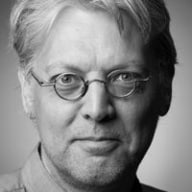The Romantic Poetry of Neo-Dadaist Hans Verhagen (1939-2020)
On 10 April 2020, the Dutch poet Hans Verhagen passed away at the age of 81 in his hometown Amsterdam. Verhagen was a versatile poet – his poems ranging from unadorned ready-mades to exuberant psychedelic fantasies, and embracing all modes in between. He was most influenced by Lucebert and at the same time most opposed to this icon of experimental Post-War Dutch poetry. In 2011 Bertram Mourits (Literature Museum, The Hague) wrote this profile on Hans Verhagen.
‘To err is human. In time you learn to appreciate the quality. And if you can’t see it you’re a dickhead’. This pronouncement by the poet Lucebert (1924-1994) gives the briefest possible summary of the history of the critical appreciation of Hans Verhagen – from disparagement to praise, both in the most absolute possible terms.
Lucebert was the principal poet of the ’Fifties Generation, the movement based on Dada and expressionism that was often caricatured and dismissed as romantic-surrealist verbal mush, resulting in incomprehensible poems.
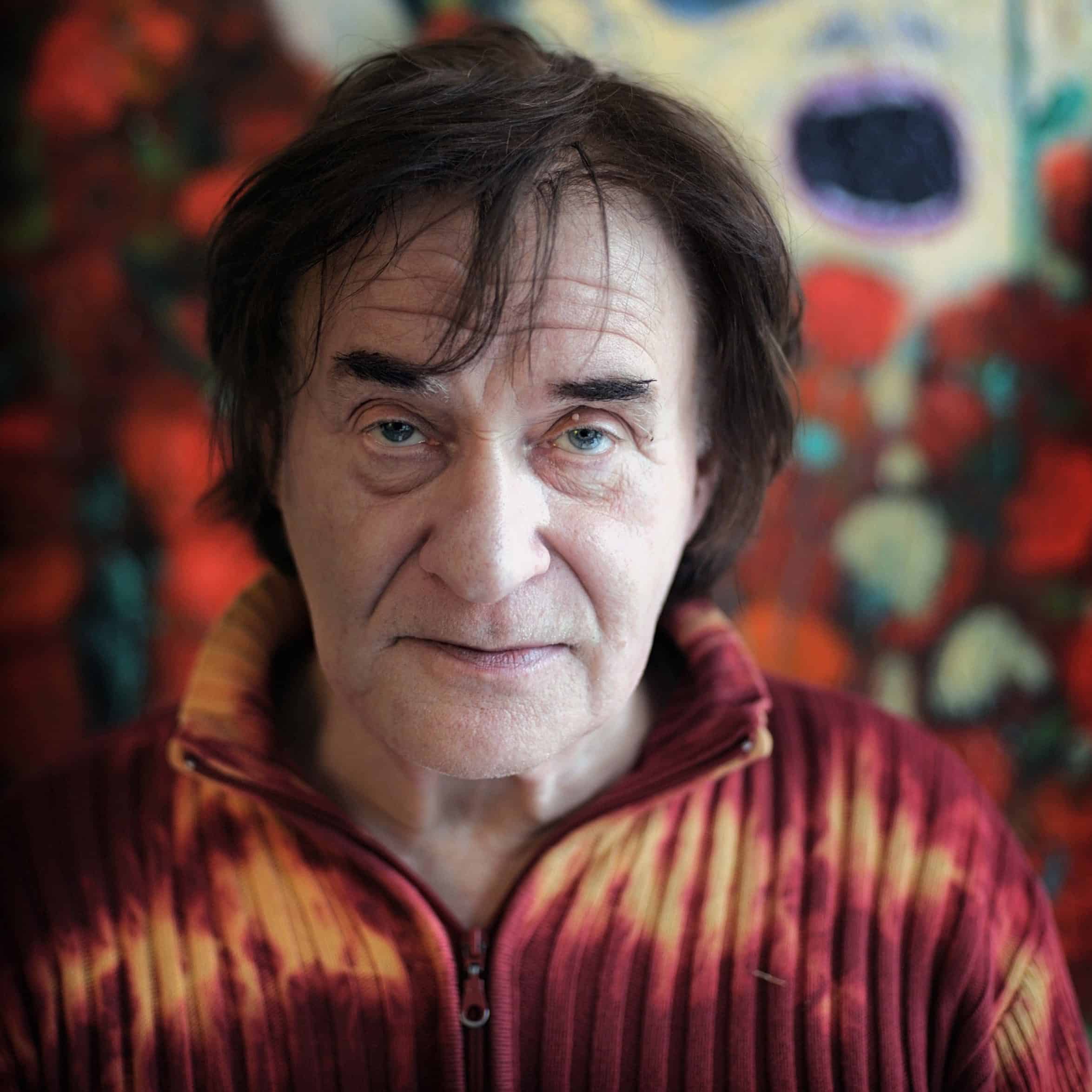 Hans Verhagen (1939-2020)
Hans Verhagen (1939-2020)© Joost van den Broek
In the 1960s Lucebert – and he was not alone – was alarmed at the new avant-garde that was emerging, most notably in the magazines Gard Sivik and De Nieuwe Stijl. These journals were inspired by the tabula-rasa version of Dadaism and the conceptual art of the 1960s that had been influenced by it. In 1964 Lucebert talked of the ‘commercial exploitation of the avant-garde concept’ and was irritated by the noise and brashness with which Verhagen and his colleagues presented themselves.
The contrast appeared absolute: Lucebert was above all an artist, while Verhagen’s interests and activities go in all directions. He has worked for newspapers, magazines and television. In the 1970s and ’80s he made documentaries and talk shows and as the producer of the Zeeland band Dragonfly
he had a brief spell in the pop music business. In short, Verhagen was much more than just a poet, and poetry for him sometimes seemed to be a side issue rather than a vocation.
Dry humour
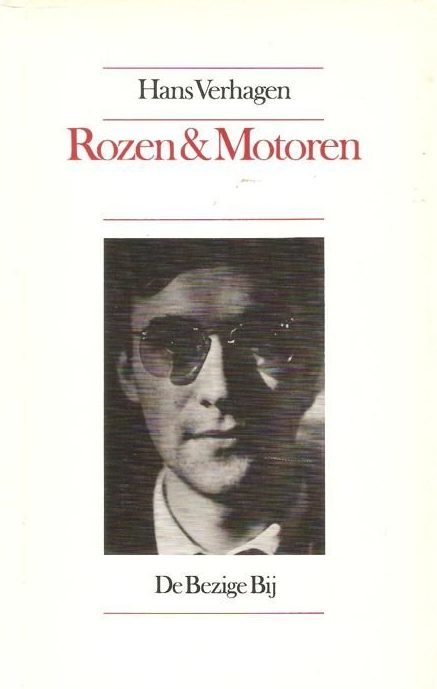
But that is only one side of the picture. Verhagen was young, fast and modern, but he was also a poet who wanted to savour language in a way that sometimes resembled the ’Fifties Generation’s use of imagery more than critics at the time seemed to realise. This dualism was already implicit in the title of his début collection from 1963: Roses and Engines (Rozen en motoren).
It is not free of roses
nor is the use of engines
alien to my body
Beneath my weary hair crows
a nightingale and sings gnashing
of dying; the process
of silence, truly, is not
complete in me
The traditional images (roses, nightingales) fight for precedence with the ‘engines’ which represent the fashion of the age. Verhagen’s poetic side was certainly seen and appreciated by reviewers, but their comments often reveal a negative attitude as regards the poets and magazines he was associated with. This review of his first collection is typical: it ‘groans under the burden of group deficiencies, but here and there personal angularity and dry humour are visible.’ In brief, Verhagen is a good poet; but he should distance himself from the nonsense of his fellow group members.
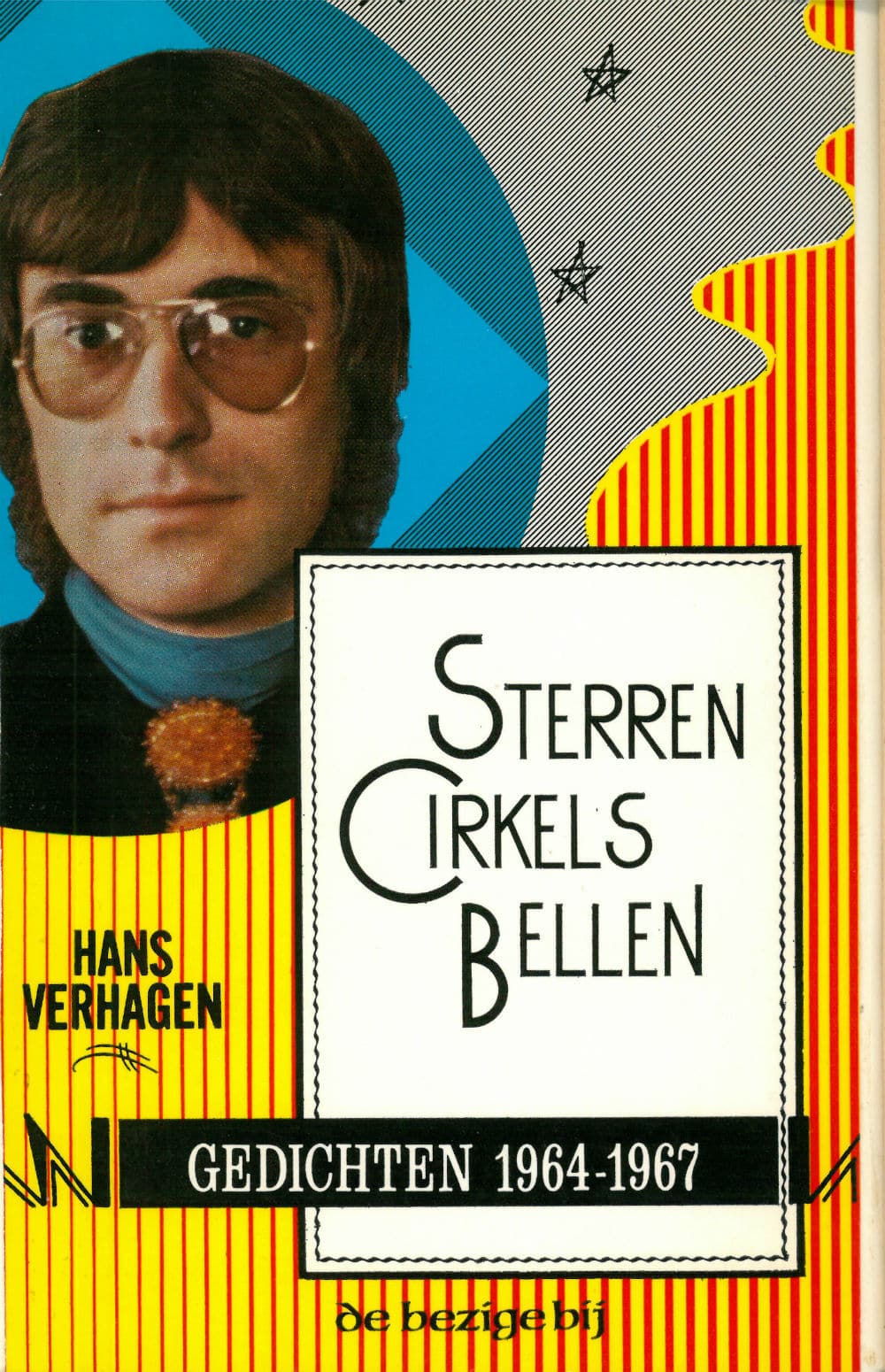
In 1968 Stars Circles Bells (Sterren Cirkels Bellen) was published, and here Verhagen was even more extreme in his seemingly deadpan passion for the experimental. The technique of the ready-made is used regularly, for example in the trilingual series ‘Kanker/Cancer/Krebs’: poems put together from separate sentences about cancer found in both medical and popular publications about the disease. There is a section dealing with television and there are ready-mades on housekeeping and lighting. The collection was glamorously designed by Wim T. Schippers, with whom Verhagen worked at the progressive TV station VPRO. Yet here too appearances are deceptive, and a romantic vision does definitely surface in various poems:
Let me take you
where the dreams lead
that stay longest in the memory.
The poet vanishes
With hindsight it is easy to see that the objective style of Gard Sivik and Nieuwe Stijl did not really suit Verhagen. Hans Verhagen ‘never really thought about it much and was the first to move on,’ is how Martin Bril sums up his attitude in an essay which was published in the survey De Nieuwe Stijl 1959-1966 (1989).
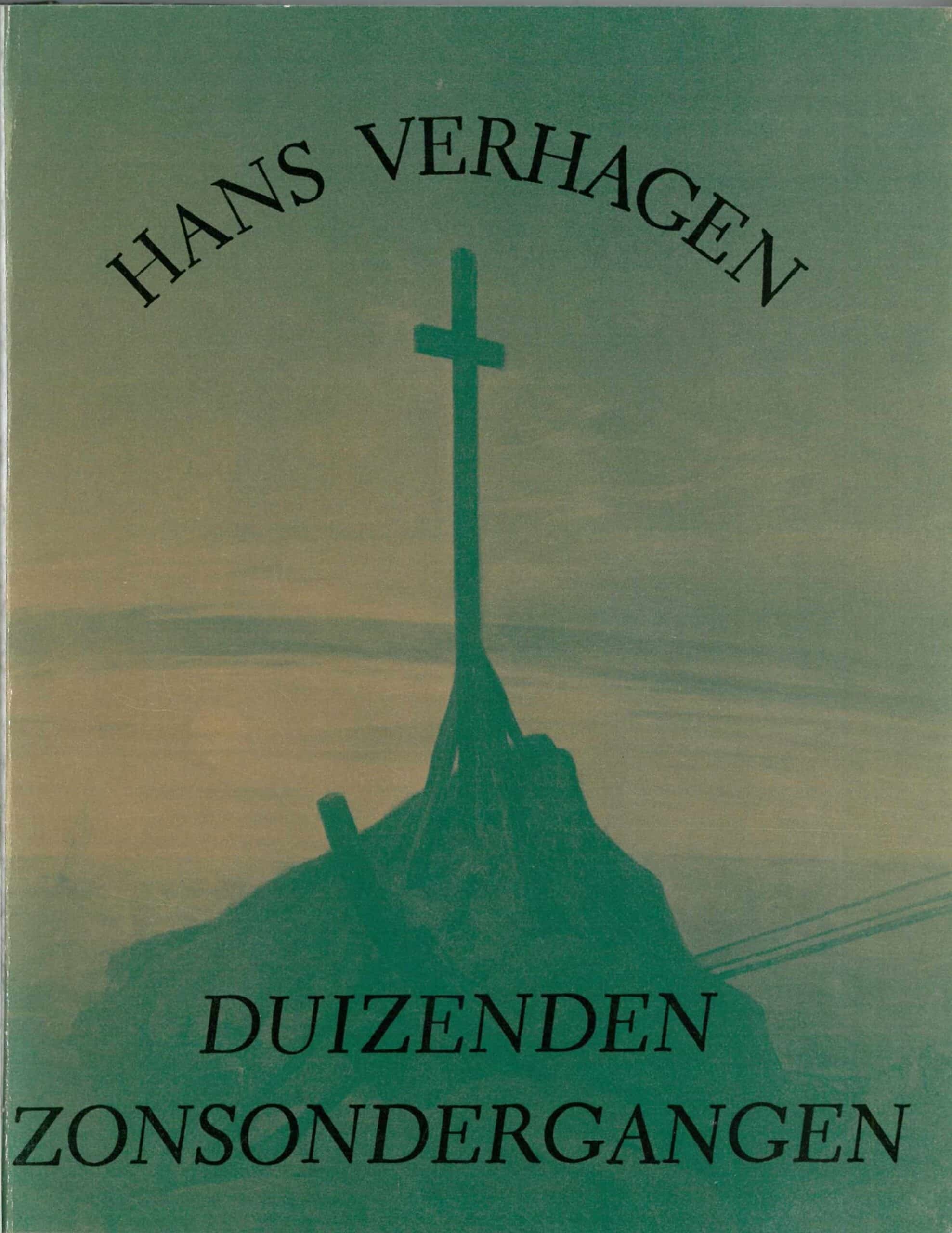
After 1968 we hear very little from Verhagen, – especially when he retreats to the island of Walcheren for a while. His stay was recorded in the TV feature Where is Hans Verhagen? The programme depicts him as a man with Messianic tendencies and the collection he is working on at that moment seems to represent a major shift in his work. The ‘engines’ have largely disappeared from Thousands of Sunsets (Duizenden zonsondergangen) and romanticism takes the lead:
Long dissipated morning red
pursues me behind my eyes,
deep raspberry red reflects deep
in the plundered cages of
neon.
The rift with his fellow group members was not lost on the critics: ‘the poems from Thousands of Sunsets [seem to be] by a different poet than the one who wrote Stars, Circles, Bells’. That is an exaggeration for two reasons – firstly, there is still room in Thousands of Sunsets for the deadpan humour which is definitely part of Verhagen’s work:
I understand perfectly young man,
I’m a total arsehole myself.
In addition, the romantic tendency was already a strong presence in Verhagen’s poetry in the 1960s. In Stars Circles Bells there is a cycle called ‘The Poet’s Dream’ (‘De droom van de dichter’), which according to the blurb is the account of a ‘psychedelic experience’ and the distance from this to the romanticism of Thousands of Sunsets is not that great.
A dust particle, dancing
in the sunlight, gleaming golden,
silvery glistening thing
Nor does Verhagen himself see the contrast in such rigid terms. In an interview in 1971 he spoke about his development: ‘anti-romanticism is after all itself a form of romanticism. That is an issue in my poetry: that affirmation of the opposite.’
But although Verhagen’s early poetry also tended towards ambiguity, in these poems he seems to have found his own voice. It is not always easy to make out, but it does gain Verhagen his most enthusiastic responses so far – including that of Lucebert, who is so important to him.
But hand-in-hand with finding a voice goes a stagnation in his development, and so with this collection Verhagen disappears from literary history. Verhagen ceases to be cutting-edge, after Thousands of Sunsets his poetry no longer fits in anywhere, and for a while he withdraws from poetry in order to resume his TV career. It was a period full of drug-taking and miserable personal circumstances, the low-point of which was the suicide of his wife and muse Connie.
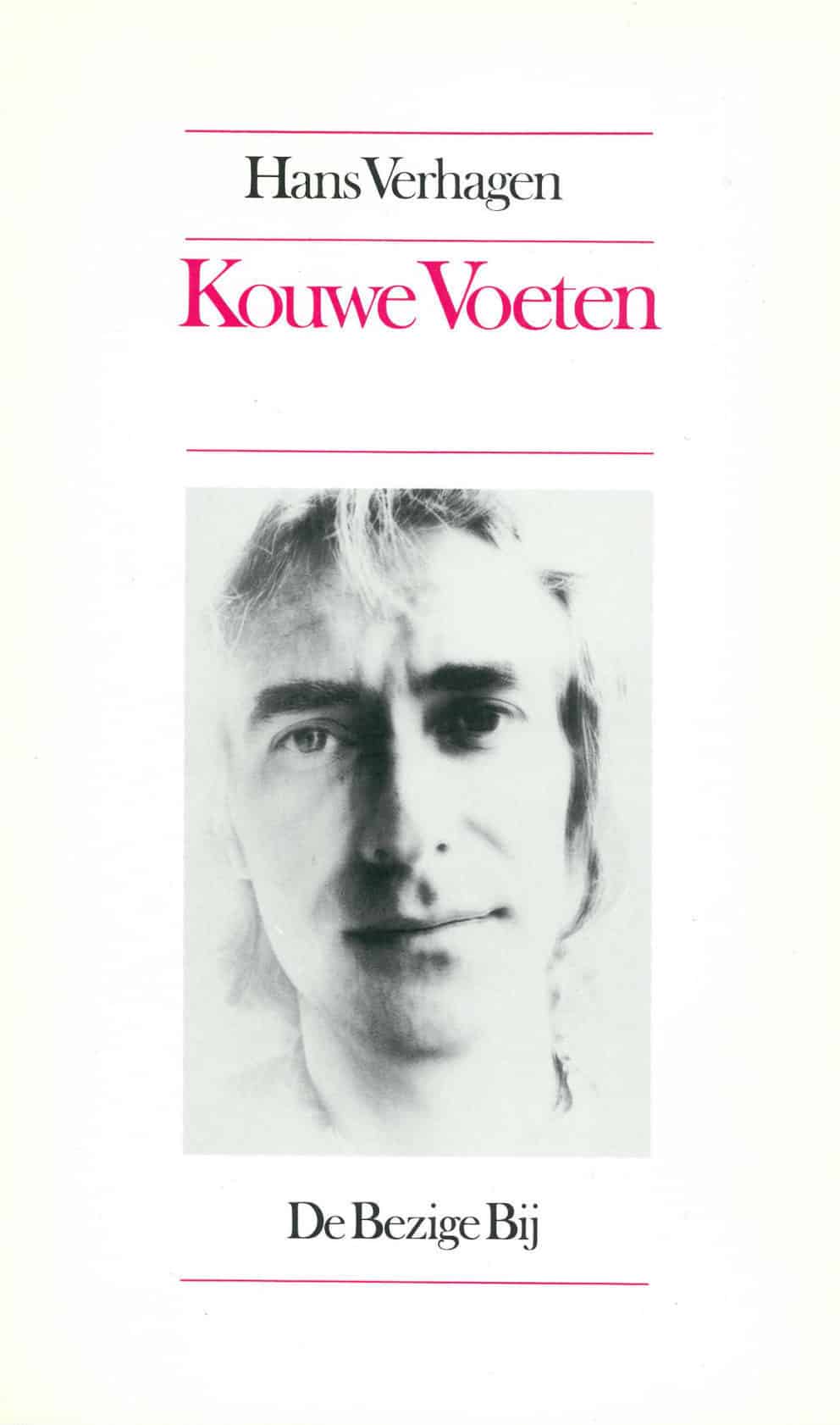
The fact that from 1976 he had, tentatively and at long intervals, started writing poems again, emerged only when the collection Cold Feet. Poems 1976-1983 (Kouwe voeten. Gedichten 1976-1983) appeared. In it his darkness had found expression. Whereas Thousands of Sunsets had contained a cycle entitled ‘Higher’ (‘Hoger’), Verhagen now writes a series called ‘Lower’ (‘Lager’), in which he struggles with his personal demons:
Everything fell under grief’s spell,
butterflies in the rubble sat quiet as mice,
even the children were silent as the grave
The collection had a strikingly unenthusiastic reception – so dark, so negative, and poetically far from innovative. From 1983 Verhagen would again preserve a long silence as a poet: he discovered painting.
A medium for emotion
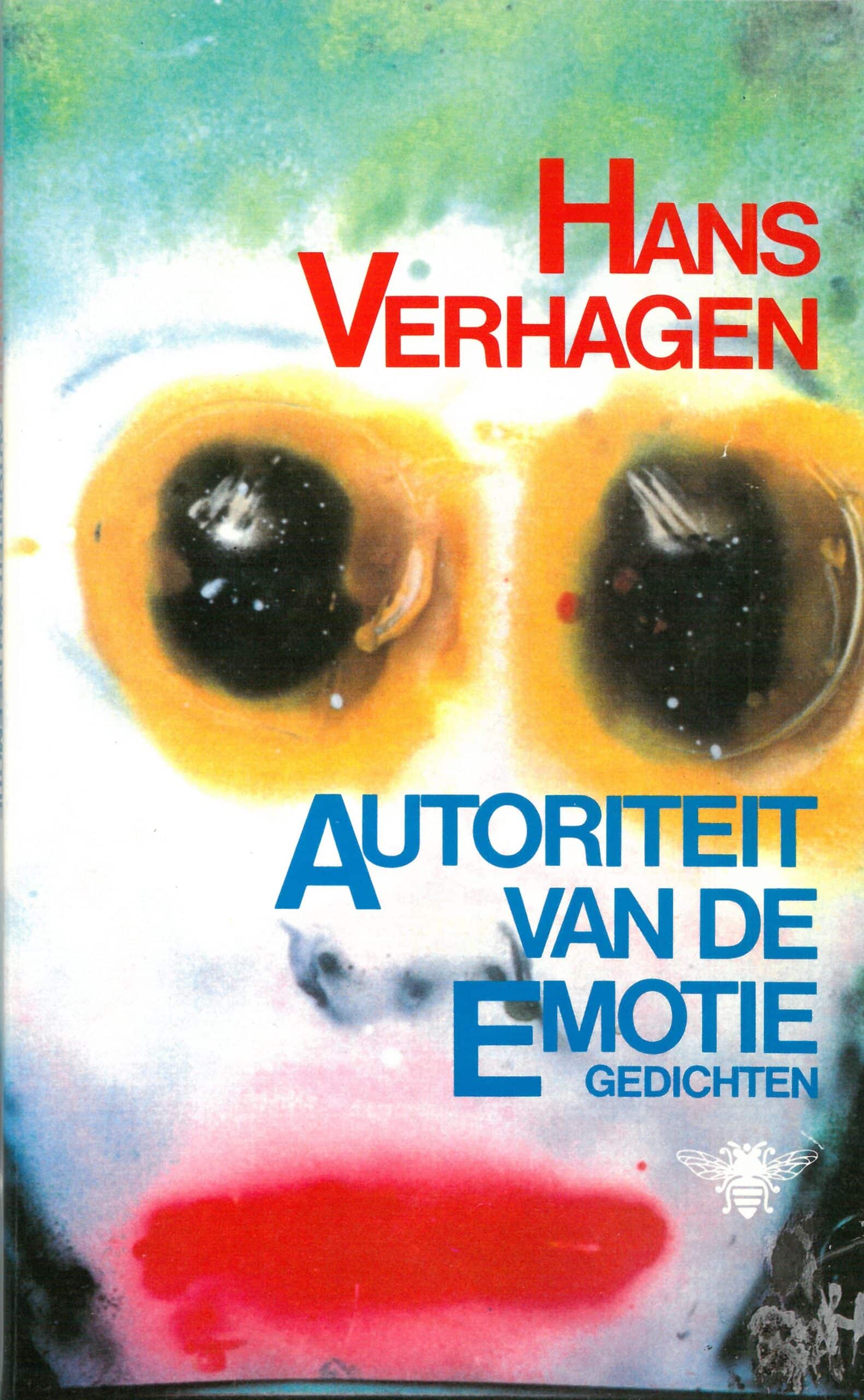
Authority of Emotion (Autoriteit van de emotie) appeared almost ten years later: a collection that moves between the two concepts contained in the title: authority, control, domination versus emotion and spontaneity. Verhagen begins with a self-portrait ‘I am not the maker of the poem / but as receptive as possible’, in which he defines himself as someone who is attuned to the ‘chords’ transmitted to him by the strings of ‘this moment in time’. He is an intermediary, a medium for emotion. Being in love is a ‘professional activity’ – love is the material of poetry, but if the poem is to succeed the poet must stay in control of his emotions.
In the following collection, Echoing Well and Castle in the Air (Echoput & Luchtkasteel, 1995), there is again a struggle with a comparable opposition. The poems are more personal than ever – and in addition Verhagen now clearly makes a choice: rather spirit than body, rather dream than death: ‘I may live in a castle in the air, / it does me more justice than living in a /coffin.’ With this choice he returns to the exuberant spontaneity of the early 1970s – he distantiates himself even more emphatically from his 1960s work. Emotion is allowed to win out over authority and although that sometimes results in poems in which the associations are so personal that the reader may feel excluded, it also produces wonderful works, especially those in which madness is observed from a distance.
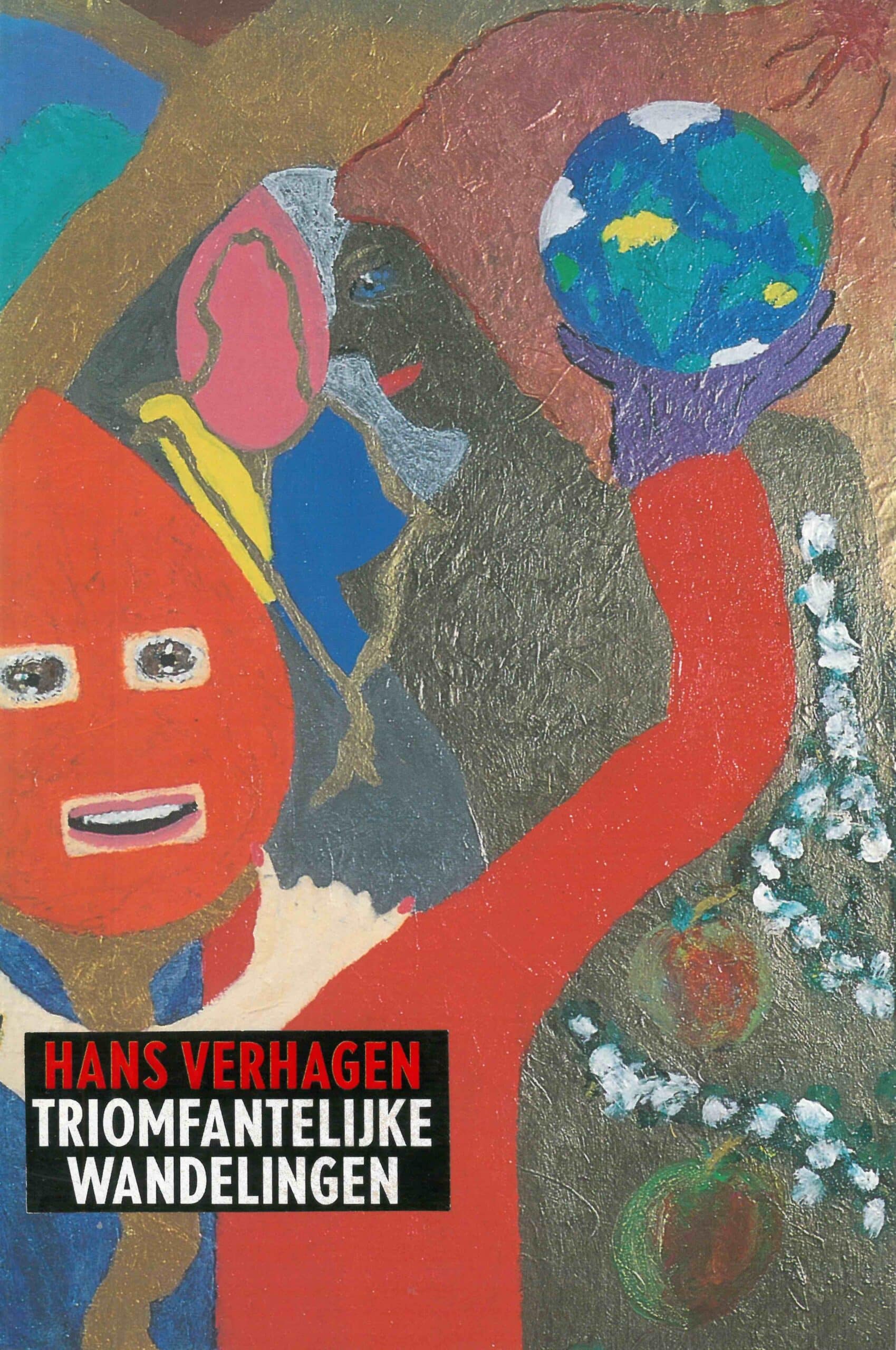
But the more personal Verhagen’s themes become, the more marginal his literary-historical role as a poet. There is a poem in Triumphant Walks (Triomfantelijke wandelingen, 2000) that can be read as a concise description of this development, ‘Step’(’Stap)’:
And they grow
not from small to large,
but from large to small.
And hence they discover
that a faux pas,
however catastrophic,
nonetheless notwithstanding
proves to be a step forward.
Here Verhagen has captured his role as a poet moving from large to small in a striking image. And if with his choice, his step, he has made a catastrophic faux pas, he accepts that. It is also a step forward because the poet Verhagen has been liberated.
In Quasi-kamikaze (2002), he goes even more unmistakably in search of his past. In this collection he also reflects on the reception of his work, in grandiose, if not overblown terms: ‘Over all heads cast onto a solitary height / Trodden into the ground by the million.’ It is no coincidence that Verhagen ‘defends’ himself with a reference to Lucebert’s collection From the Abyss and the Sky Man (‘Van de afgrond en de luchtmens’): ‘Descending from sky man to foot soldier/ I experienced not as humiliation/ but as a completion of my profundity.’
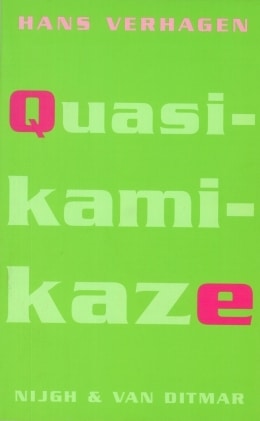
One must live
This collection marks the turning point in the history of the appreciation of Verhagen’s work. Two important Dutch poets review it in the two major Dutch dailies: Ilja Leonard Pfeijffer in NRC Handelsblad and Piet Gerbrandy in de Volkskrant. With the appearance some time later of his collected poems (Eternal Flame / Eeuwige vlam, 2003) Verhagen’s reputation as an important poet is re-established – and secured. In the first regular collection to appear after the collected poems (Mother is a Robber / Moeder is een rover, 2004) Verhagen is often amusing, but never without a sharp edge: ‘Who of all people wants to reproduce a human’. On other occasions he proclaims striking truths: ‘When you’re dead you can still renounce survival’. Images can be ‘beautiful’ in an old-fashioned way: ‘Pearl-like the rain strings itself along a gossamer line’ and then again extremely down to earth: ‘Listen to how space slides down kitchen sinks into the wide world of the sewage system’.
Both roses and engines can still be found in his poetry – but where Verhagen opts for romanticism the emphasis is beginning to shift. Because in the meantime his involvement with the world has become more and more explicit – no longer does he write mainly about coming to terms with events in his own life, but society comes increasingly to the fore.
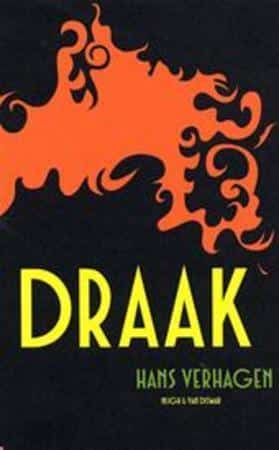
In Dragon (Draak, 2006) Verhagen paints a pitch-black vision of a world full of ‘rich businessmen / and revolving-door criminals (both thieves)’, of a railway worker whom he suspects of dreaming ‘of, in the absence of the ss, being authorised /to castrate the homeless by the railway police’. This is a world in which
Cutely glazed babies are fattened
and then, heavily armed,
are deployed for a noble and criminal universal end
In a word: a ‘cancerous society’. These poems give the impression that Verhagen was ‘angry’ with the world, but he denies this vehemently in an interview: ‘In every review of my most recent collections I am called angry, but I’m not angry at all. When you see the kinds of misery that are possible, and what is made of it, things aren’t too bad.’
And it’s true that Verhagen also has an eye for beauty, for love, and invariably writes out of great involvement: ‘I don’t get this place at all / We live here to our heart’s content / while misfortune nevertheless lies in wait in the eye of the calm on the corner / for a blind spot.’
Verhagen goes on looking for that other world, inspired by beauty, animation and higher things. In the cycle ‘Walhalla’ he describes how artists go in search of a world situated between sleep and waking, intellect and instinct, art and nature.
Opposites continue to play a part. There has always been the world of love, romance and freedom – and always the reality which frustrates ideals.
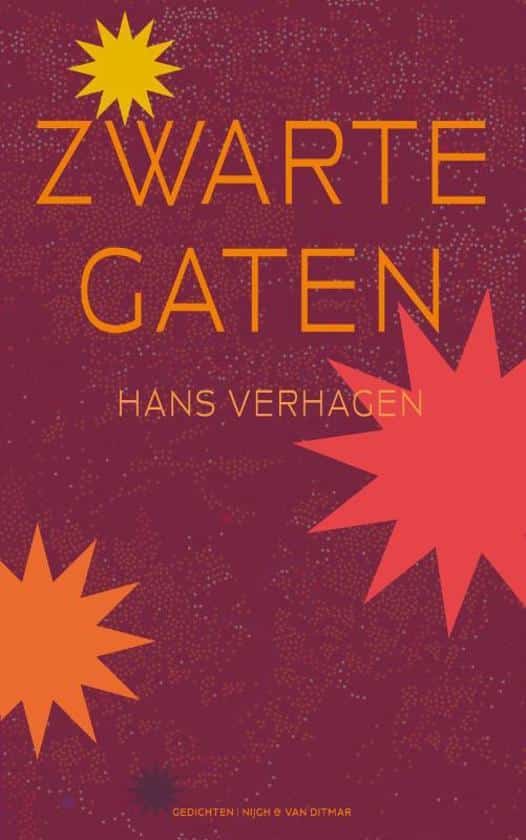
In Black Holes (Zwarte gaten, 2008) too, Verhagen’s vision of the world is a dark one. Here too existence is a life-and-death struggle that in the nature of things is doomed to fail. Dreams, plans, solutions, liberation: all are possible. But we must not forget what life consists of, it all takes place ‘as we die’. But until it gets to that point, we have to live, there must be amazement at every level, from the cosmic (‘Snatches of clouds steeped in vision travel round in cyclones’, reads the first line) down to the mundane – with the emphasis on politics: ‘Once more we let the route be set / by anxious hypocrites and arch-betrayers’: in the context of contemporary Dutch affairs it sounds almost like editorial comment.
The central opposition in this collection is between the black holes of the title, the infinite mass from which there is no escape, and the lightness of an approach to life. The airiness is in the language, in the age-old procedure that creates space for imagination, movement, and humour: ‘a supersonic football-girl in an eleven-man foldaway bed’ or ‘Let’s all go to Japan / where after all the earth moves by itself / for those who can’t dance.’
Roses and engines
Verhagen is versatile – his poems range from unadorned ready-mades to exuberant psychedelic fantasies, and embrace all modes in between. He laid the foundation for this in his very first poems, in the image of roses and engines. In the forty years since then his works have oscillated between these two poles. At one moment the objectivity of the modern world seemed to have the upper hand, at others Verhagen opted for the standard, not to say clichéed, image of poetry.
In the narrative of literary history those poems feature most prominently in which Verhagen, with the objective poets of his generation, seemed to take a stand against the poetry of the ’Fifties Generation. However, the poet himself seemed more at home in poems that were personal, associative and full of imagery – which had more in common with the work of the ’Fifties poets, and especially with Lucebert, than you might expect.
When Verhagen looks back in 2003, it emerges that he found a form that enabled him to relate to Lucebert. In 2003 he says in an interview that he regards the ‘liberating poems’ of Lucebert as ‘the true source of inspiration’ for his work. And the following exchange from another interview speaks volumes:
‘What poet influenced you most? “Lucebert.”
What poet were you most opposed to? “Lucebert.”’
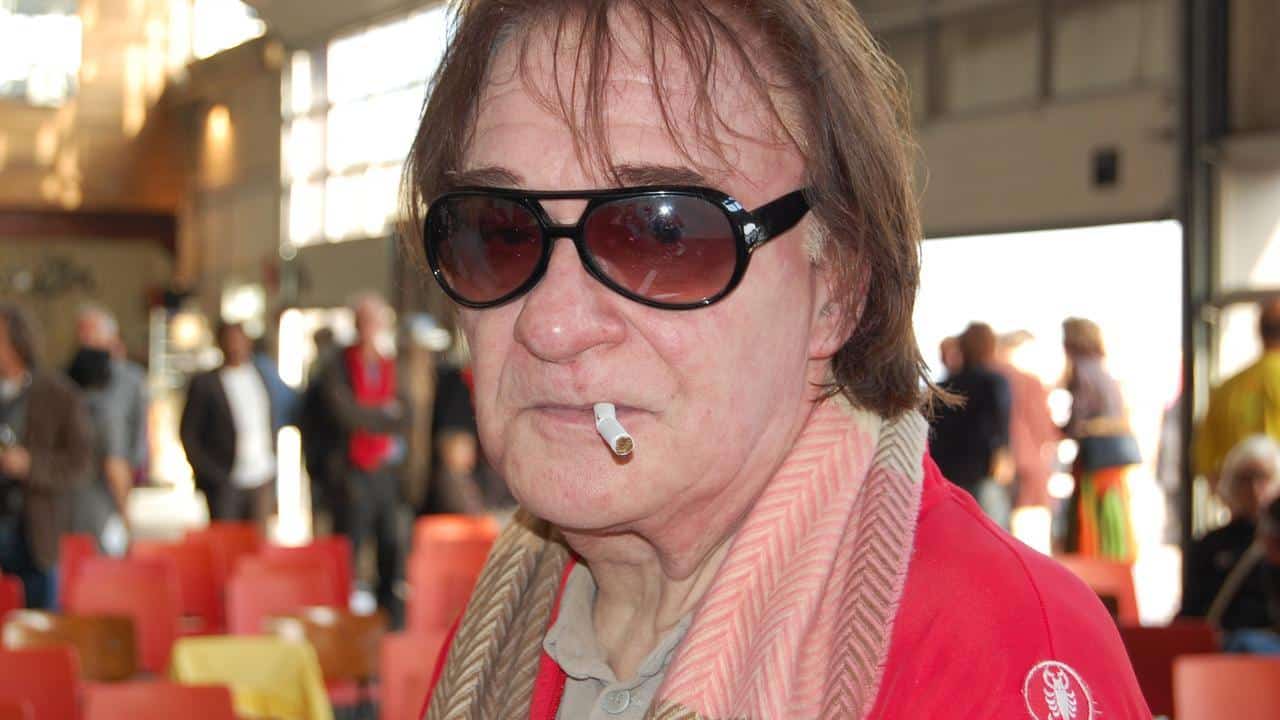 Hans Verhagen in 2008
Hans Verhagen in 2008© Jan Zandbergen / Wikipedia
Both attitudes can exist alongside each other and so Verhagen has found his niche in Dutch literary history. The reappraisal that began at the start of this century and culminated in the award of the P.C. Hooft Prize in 2009 has clearly done him good. He is more productive than ever, and the struggle between romanticism and reality is no longer the problem but has become the thematic starting point of his poems. Verhagen has discovered that reality is so absurd that the romantic vision imposes itself almost automatically. He no longer needs to choose. The madness is channelled, what is ordinary is made special, the roses have reconciled themselves with the engines and the poet has found his true form.
This article was previously published in the yearbook The Low Countries № 19, 2011, pp. 204-209

